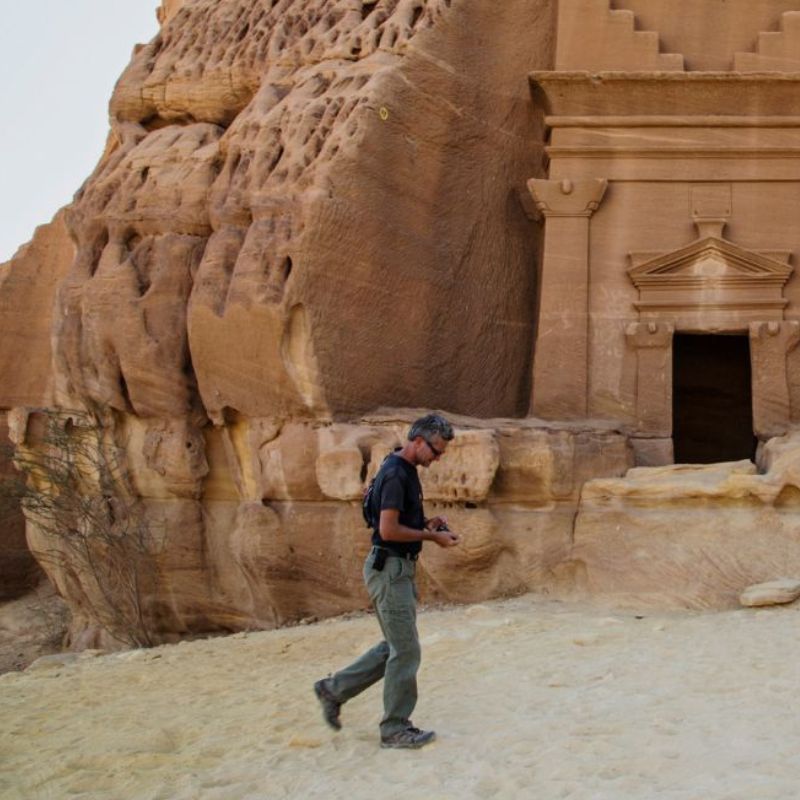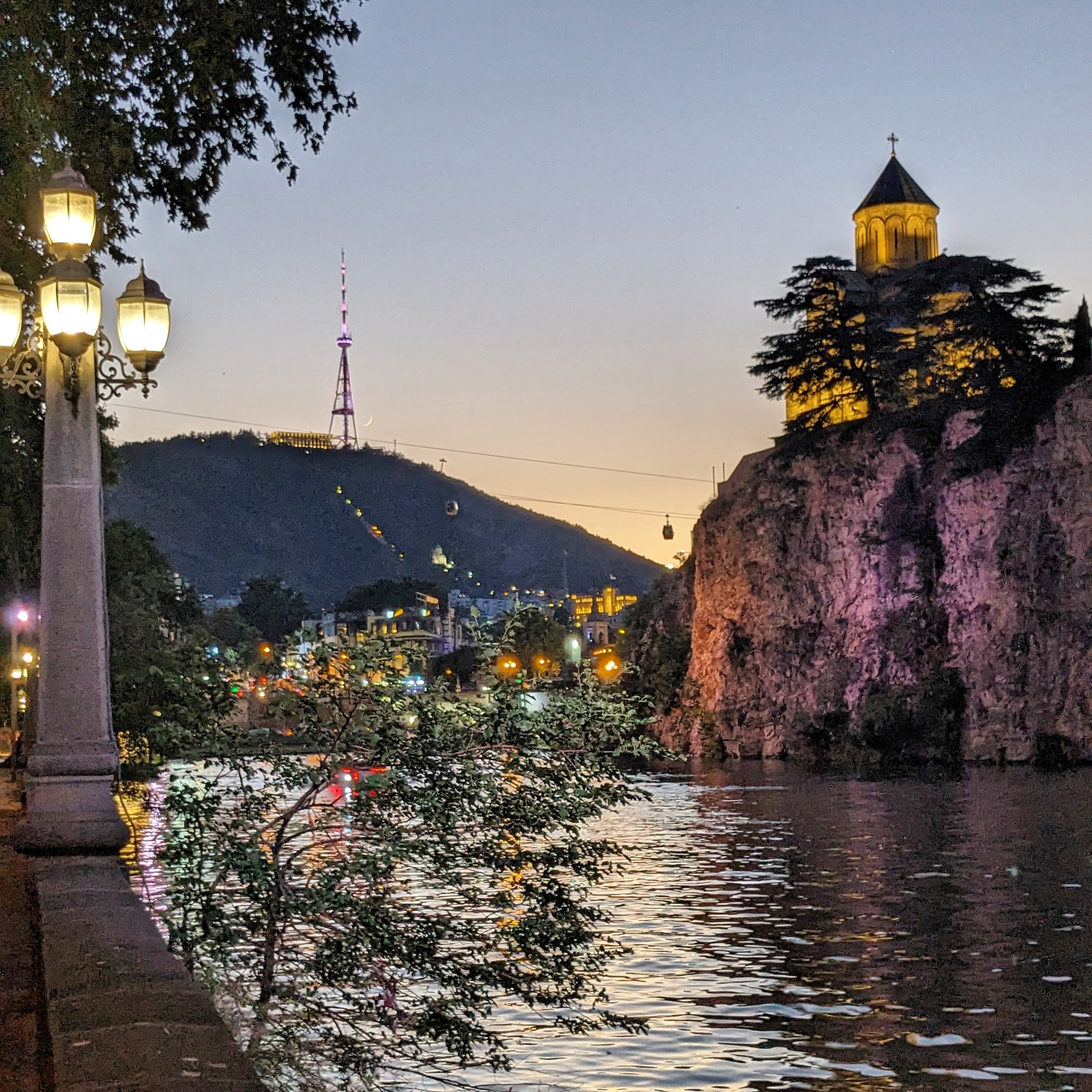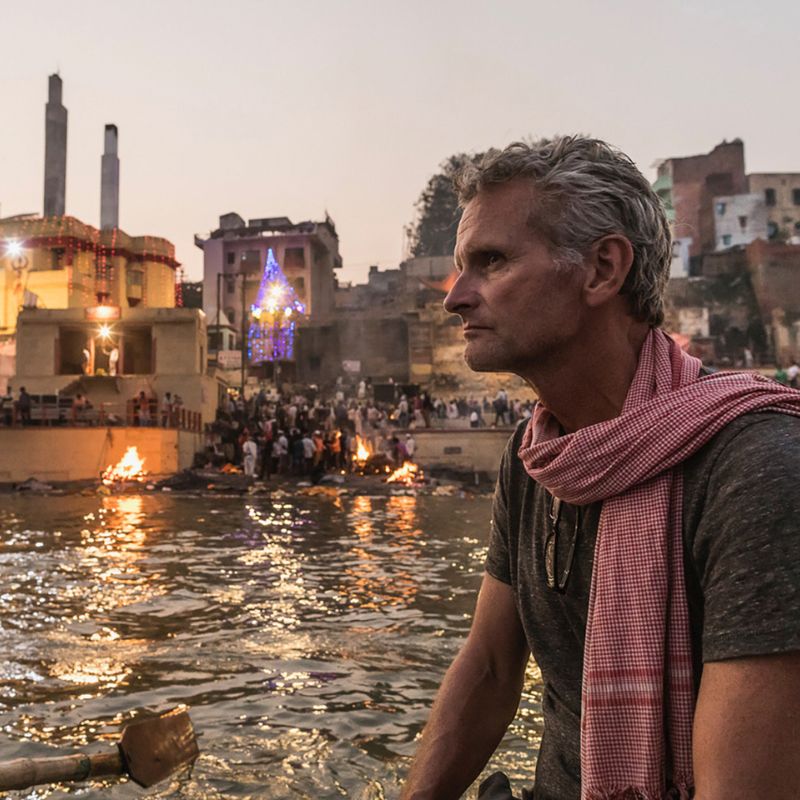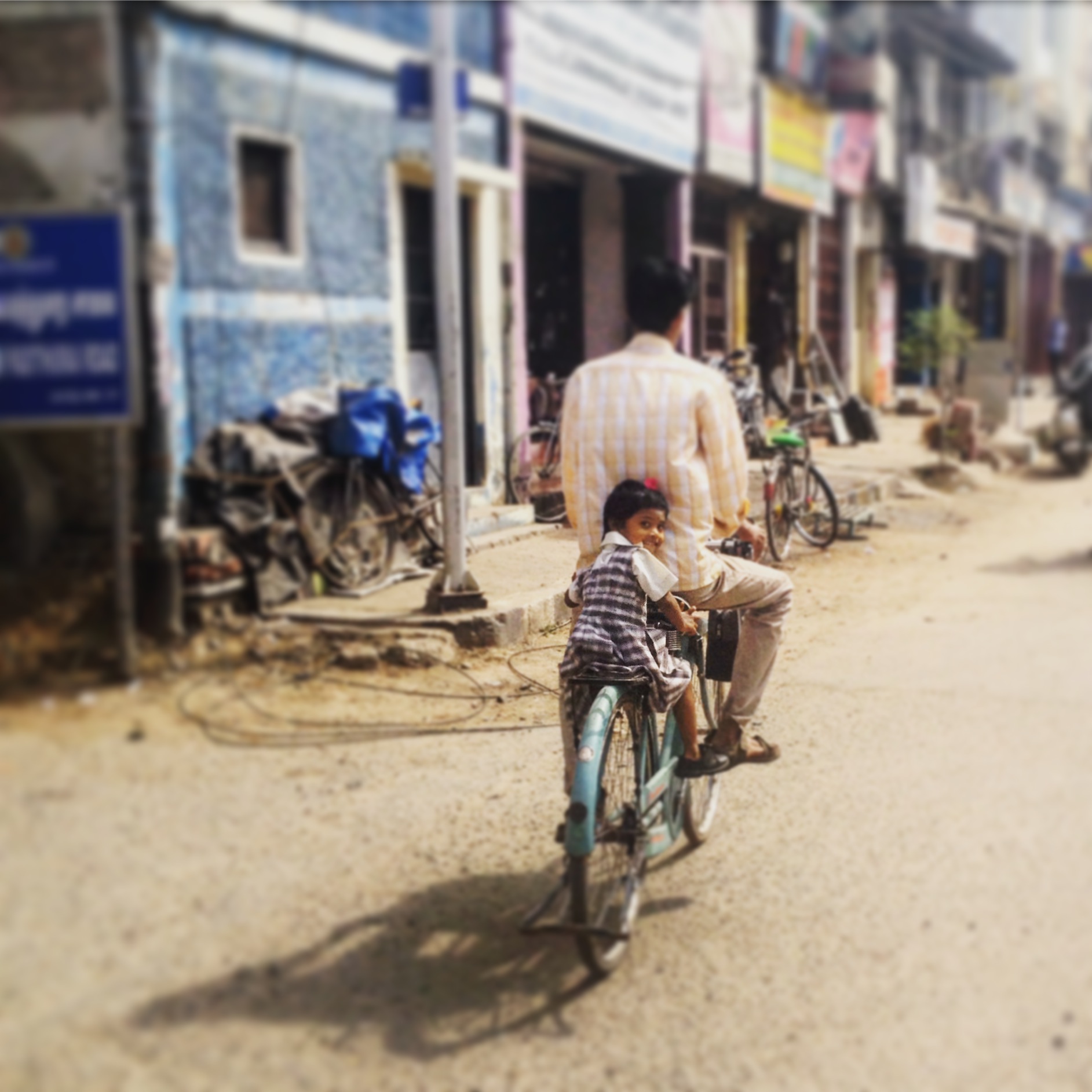Known for his groundbreaking Out of Eden walk I was delighted to interview Paul Salopek recently by video link from his current base in China. Talking about his epic journey we discussed some of the most poignant moments from his past eleven years on the road, including how returning to countries he had worked in previously was like a re-visioning of a personal landscape as well as how walking every day has hammered home the sad reality of just how f*cked up the planet is.
 |
| Paul wanders through the ancient ruins of Madain Salih (Photo by John Stanmeyer, National Geographic Society) |
For the second part of our chat I learned plans change fast when you’re walking the globe, as Paul explained how Georgia, which wasn’t on his originally planned route ended up being home for 42 days when, thanks to visa issues, Iran became impossible to cross through. Desperately hoping to walk through Iran due to its importance for human migration and its rich cultural heritage, it was the country that wasn’t meant to be. Paul’s visa didn’t come through and since he couldn’t head south at the time he went north to the Caucasus, an area entirely new to him.
Lydia: Paul, I’m curious to hear about your time in Georgia. It’s a place I fell in love with last year and I’d like to hear how you found walking through the country?
 |
Tbilisi, Georgia
|
Paul: I never expected to come to the Caucasus, I don’t think I’d read one single book on the Caucasus, and then I came here and found that it’s such an extraordinary crossroad between Asia and Europe, and everybody walking down Rustaveli Avenue—you could have one person with Central Asian features, another who has Slavik features, someone who looks Persian—I loved it for that reason. And also the fact that these countries, as they are today are made up of minorities, and very complicated mixes, every valley might have a different dialect in it and so yeah, the Caucasus was a big discovery for me and I loved it with kind of a sense of being a kid in a toyshop. And the hospitality, which you probably noted when you were there is extraordinary. I think I spent 42 days walking across Georgia and I finally had to start taking hotel rooms because I was spending so much time in people's houses that I had no privacy, so I would finally go take a hotel just to have a little personal space because people are so kind there.
Lydia: Completely, I found the people of Georgia to be incredibly kind and welcoming in a similar way to India too I guess?
Paul: India was a new place for me too, I’d never been to India, the same as China. They’re their own cosmos, you know, you probably know these places better than I do. Walking through India was such an incredible privilege and the same with China and with COVID shutting down the country for two and a half plus years it was a real eye-opener and a real huge learning curve, both places for me.
 |
| Paul in Varanasi, India (Photo by John Stanmeyer, National Geographic Society) |
Lydia: I’ve never visited China, but India is one of my favorite places to travel, and to travel slowly. Tell me more about your time crossing Northern India…
Paul: I walked from Pakistan to Myanmar and it was along this very long line, something like 4,000kms and so it took like 16 or 17 months, and the thing that sprung out to me—I looked this statistic up back then, I don’t know how accurate it is—but basically there’s something like 360,000 villages in India, there are hundreds of thousands of villages and the part of India that I forged was pretty much village India. I did walk through big megalopolises and had an urban experience or two but I’d say about 80 percent of my route was through rural India and readers would sometimes ask me, ‘Does it get repetitive, you’re going through one Punjabi village after another Punjabi village? Every two kilometers there’s a village, right?’ And surprisingly to me, no, it was not repetitive at all.
 |
| Village life in India |
Two villages two kms apart had very distinctive vibes to them, I wondered myself why does one village feel this way, the next one, almost within eyeshot, have a different vibe? It’s just the people in them, you know, villages are little cosmos in themselves so I was walking through a gigantic cosmos called Northern India and spending a night, every night in a different tiny cosmos called village X, Y or Z. And so India was a constant revelation and it was also one of the most walking friendly countries that I’ve been walking through, partly because of economic distress but also because of a tradition of foot pilgrimages, there are still both the emotional but also the physical infrastructures for people to walk, right? There are resthouses for pilgrims in some villages where you can doss down at the end of the day, they’re pretty rugged but they’re there and people put out ceramic jugs of water in the cruxes of trees for passersby to have a dipper of water, you know, in the shade, and people are walking. There are tens and tens of millions of people out on foot and so I was one very privileged, skinny white walker among this multitude of other walkers. India was very congenial to walk through because of that.
Lydia: Ahh, I bet, what an amazing part of your journey. For this particular part of the walk did you stay in people’s homes each night or camp?
Paul: I slept everywhere in India, on rope beds in farmer's huts, where all they could offer was just a bit of flat bread. Or in temples, I’ve spent many nights in beautiful Hindu temples. One night I slept on the top of a hill with a female guru in her stone hut. Occasionally in hotels in the big cities, sometimes in schools or orphanages.
Lydia: I bet you had some great food in India too?
Paul: The food in India is extraordinary but I’m not an epicure, in some ways that’s maybe a good thing as I eat pretty much whatever is in front of me. Aside from India, the vegetables and the yogurts I ate while crossing Anatolia in Turkey were a delight. And China also. China to me, it’s a nation of foodies, every person that I meet, every family is really focused on the quality of the food they eat, and it is often for that reason, very good and very fresh. I think people who live in some societies like the one that I was born in, in North America have forgotten that because all the food is so processed and so walking through some of these places where people still value and often grow their own food in their backyard has been a wonderful part of this experience.




Post a Comment